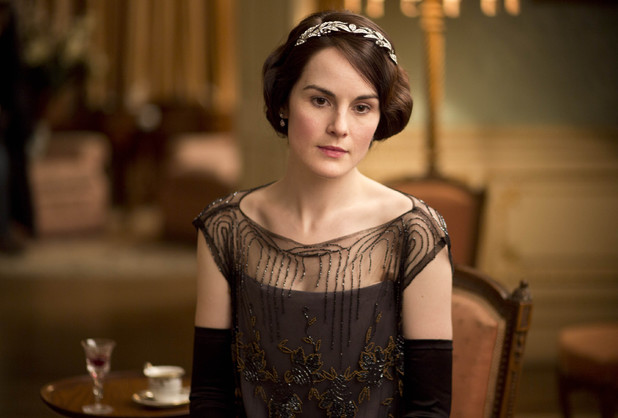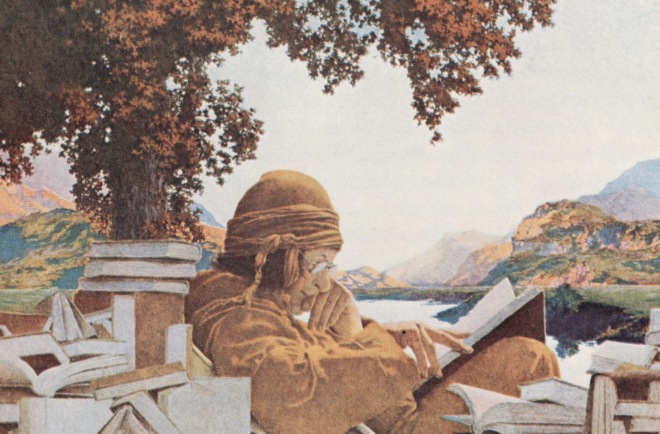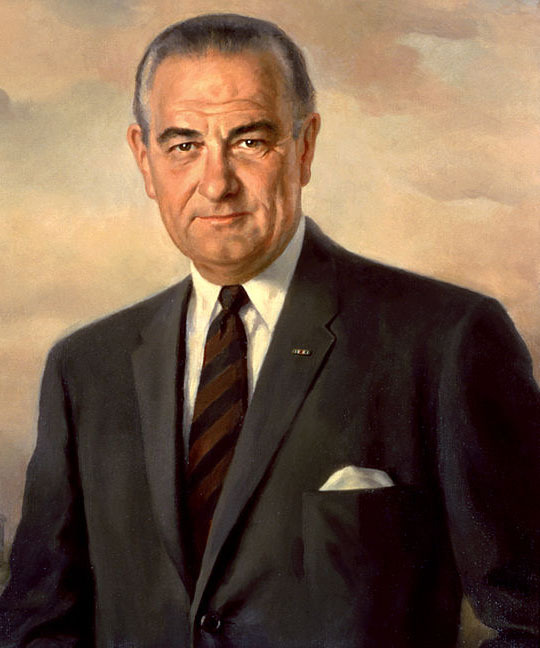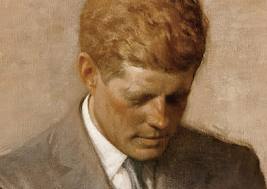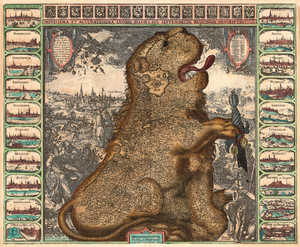Freedom’s daughters
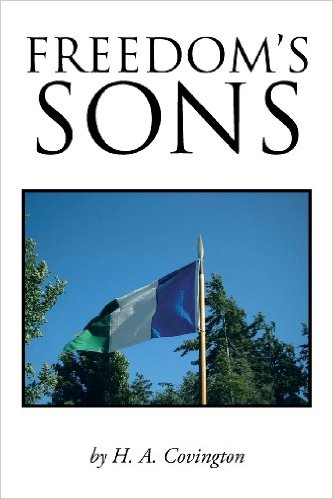 Harold A. Covington is a neonazi and a novelist. He advocates the creation of a new nation, a white Republic in the Pacific Northwest region of the US as a sanctuary to prevent the extinction of whites. Covington’s five novels present a fictionalized account of the rise of a future Northwest American Republic. This nation secedes from the US, ejects all non-white inhabitants from its territory and becomes a regional superpower, defeating US attempts to re-conquer it.
Harold A. Covington is a neonazi and a novelist. He advocates the creation of a new nation, a white Republic in the Pacific Northwest region of the US as a sanctuary to prevent the extinction of whites. Covington’s five novels present a fictionalized account of the rise of a future Northwest American Republic. This nation secedes from the US, ejects all non-white inhabitants from its territory and becomes a regional superpower, defeating US attempts to re-conquer it.
Corinna Burt (“Axis Sally”) was Covington’s personal assistant, co-host and appeared on his weekly podcasts numerous times. She apparently was screwing black guys while working with white supremacist Covington. After leaving Covington Burt went back to her vomit: bodybuilding and a pornstar job. The bitch even attacked Covington and white supremacy in her blog and in her YouTube channel.
How could this have happened to a novelist that has been compared to Homer by one of the finest Europeans intellectuals? The answer is simple: because Covington believes that in the coming racial wars women are interchangeable with men. He even coined a term for such women in his quintet, “gun bunnies.” If we keep in mind what John Sparks and the blogger have been saying in the last 29 entries we can see how silly this view is from the standpoint of natural science.
The best way to illustrate Covington’s feminist views is simply quoting from what he wrote in the last novel of his quintet, Freedom’s Sons, a book of almost a thousand pages. In the prologue he wrote:
Wingfield scowled after her: “I’m sorry if my order to keep our female comrades out of direct combat ruffled their feathers, and I know they’re all as brave as lions or they wouldn’t be here…” [p. xxxvii]
Brave as men. Really? Where’s the historical precedent that soldier women have joined men on the front during the bloody battles that marked the destiny of the nations?
A number of Nationalist soldiers wearing NDF [Northwest Defense Force] tiger-stripes—mostly female, in view of Wingfield’s ban on women in direct combat for the operation—were manning the electronic gear and talking into microphones, wireless phones, and typing on laptops. [p. xli]
From the feminist viewpoint the Northwest American Republic looks like Murka II, and to boot, Murkans incorporate second-wave feminism (keep in mind the blogger’s analysis of feminism in the previous posts).
“Okay, comrades, we’re going to have a major troop movement of about four thousand men crossing the enemy’s front, and we need to make sure they don’t get hammered by the heavy stuff,” called out Wingfield. “Who’s hooked up with artillery fire control?”
A woman soldier raised her hand. “I am sir.” [xliii]
Covington is no natural scientist. The point of keeping women away from the front is that their wombs are too precious for the fulfillment of the fourteen words. In addition to their lower strength, lower resistance and lower IQs you simply cannot endanger them as if they were mere grunts.
“Two of ’em at least are gone, sir,” Lieutenant Campbell said. “We have a Threesec spotter doing a Tarzan act up on top of the I-5. She climbed up there onto a beam or something pretty high up, where she can see over what’s left of the buildings along the river. She’s got a set of field glasses, one of our radios she got from somewhere, and a wireless laptop. What she can’t see, she can get off Google and CNN. She has a bird’s eye view of Edgewater golf course, the Arboretum and Delta Park East. She’s calling in to C Battery, that’s the 155s on the corner of Maritime and Columbia, and also to the Sector Two mortar crews’ fire control officer. That’s about twenty-five pieces, eighty-one mils mostly. She’s dropping some heavy shit on those niggers along MLK and all the way down to Bridgeton.”
“She?” shouted Wingfield in exasperation. “Judas priest, did none of you ladies understand my order to stay out of direct contact with the enemy? I thought I was supposed to be a general or something? Army Council says so, anyway. Didn’t any of these mutinous gals get the memo?”
“This girl says she’s Third Section and she knows you, sir,” replied Campbell. “Anyway, she didn’t ask me or anybody else here. She just went out there on her own. First we heard of it was when she started calling in to C Battery a few minutes ago.”
“Pipe it up so I can hear whatever the hell she’s doing,” ordered Wingfield. [p. xliv]
What would a Nazi of the 1930s think of this American neonazi? This fictional liberalism looks like a typical Jewish psyop to sabotage the military of an Aryan nation.
In the first chapter of Freedom’s Sons, “A Madhouse of Ministries” Covington wrote what is perhaps the most offensive lines of his long novel:
The new government department consisted of 32 people plus himself, about evenly split between male and female. [p. 8]
So in Covington’s “Nazi” cabinet more women were appointed than what Donald Trump is appointing for his cabinet this very day! Another offensive line appears a few pages ahead:
“A lot of Christians and general Neanderthal male chauvinist types want to go back to an all-male army.” [p. 23]
The only Neanderthal is he who believes that only the Christians have had all-male armies. You can imagine what would have happened to the Muslims in their battles with us if they harbored armies evenly split between male and female, and let’s not talk about the non-Christian Spartans or the ancient Romans.
“No more. From now on citizenship and the right to vote is something that has to be earned, and right now the only ones who have earned it are those who fought in the NVA [Northwest Volunteer Army] and the NDF. I have been told that there will be ways in which non-NVA veterans may apply for and receive third-class citizenship, which will get you one vote. Us guys who put our lives on the line for our race and our new nation will have two or three votes each, that’s true, but that’s as it should be. And there’s other ways you can get a vote. For example, one of the things they’re talking about at the Convention in Olympia is allowing mothers with children to get third class citizenship right away, so long as you’re willing to take the oath of loyalty to the Republic. We understand that the results of an election that allows only NVA and NDF people to vote would be considered morally questionable, and so for the first couple of years until we can work up a whole new order of society and a whole new way of doing things, we’ll be kind of playing it by ear. [p. 43]
Unlike the Third Reich democracy continues in the Northwest American Republic and to boot women can vote. What would the blogger think (remember that the welfare state is related to women’s suffrage)?
Robert, this is Millie, one of my part-time admin assistants from the high school. She graduates in June and she’ll be doing her Labor Service here at UM along with night school for a teaching degree, and so she’s getting a head start on things now, after school.” [p. 195]
The Northwest American Republic is indeed a sort of the second incarnation of Murka. Women are still making careers like any other guy in today’s West. About a hundred pages later we read:
“So what can we throw against these bastards?” asked Morehouse.
“Almost five million men and women under arms, including our regulars, who are the best trained and most highly motivated individual soldiers in the world. [p. 288]
Neonazi women are perfectly interchangeable with neonazi men, even in the army. Let’s jump 235 pages ahead and hit this passage:
With Barrow was his blonde and Canadian-born wife, former NVA Captain Jane Chenault, who was now the senior Permanent Secretary for Education, essentially the senior civil servant working under the Cabinet Minister for that department. For the duration of the war, Jane had reverted to her reserve military rank of colonel, and she had promised her husband that if she were not allowed some role in the conquest of Canada, their future married life would be something to make him shudder. Like all wise husbands who know when their wives really mean it, Frank gave in immediately. Jane was proud and pleased to discover that her statuesque figure could still fit into her old Kevlar vest from her NVA days. [p. 524]
In Covington’s world white women are not only empowered, they are still doing shit tests—and men comply! No wonder why Uncle Harold misjudged the character of Corinna…
The novel actually ends on page 537. The remainder of the book is like the sixth novel of Covington’s saga about the creation of an ethnostate. My guess is that since Covington had promised his listeners that Freedom’s Sons would be his last novel, instead of recognizing that it was not the last one he decided to insert the rest of the manuscript under a single cover. But the plot of the rest of the book is so different that a future editor would separate the books.
In the climax of Freedom’s Sons a woman kills Hunter Wallace, the president of the United States, when he was about to nuke the racist ethnostate. Notice that the heroine is a woman.
In the remainder of the “fifth” novel, the Republic is consolidated. If you read it all together the remainder represents a big anticlimax. Covington even goes back to the detective fiction genre of the first novel that he wrote of this saga, The Hill of the Ravens. In this “sixth” novel another crime has to be solved within the now safe Republic. The very title of the first chapter of this “sixth” novel betrays that is another book altogether: “32 Years, Seven Months After Longview.” On the very first paragraphs of that chapter Covington wrote:
Colonel Robert Campbell, who at the age of 46 was now the head of the Civil Guard’s Montana regional Criminal Investigation Division, shook his salt- and-pepper head in bemused admiration. “I’m sorry,” he said, “I still can’t wrap my mind around it. Where the hell did you come from again?”
“From down in the number four traverse trench,” replied his daughter-in-law, Allura Myers Campbell, a graduate student in archaeology at the University of Montana. She was wearing khaki shorts, a khaki work shirt, mud-caked work boots and knee socks, and a large floppy straw hat to protect her head from the sun, which in May was already becoming uncomfortably hot in the pine hills of Lost Creek. [543]
Two pages later we learn that this woman is an intellectual:
“Nope, first time for both of us,” said Campbell. “Tom and I are going to be running point on the security aspect of this visitation of foreign eggheads. No offense, honey.”
“None taken,” said Allura with a merry laugh. “I am an egghead.” [p. 545]
Allura is a 22-year-old girl of the ethnostate. So women not only compete with men in the military but in the world of ideas. Covington doesn’t seem to realize that the feminist world he depicts is contradicted with what he himself writes on the next page: “…a wide range of uncles, aunts, grandparents, cousins” as if it was possible to have both radical feminism and prolific families within the same society.
Three hundred pages later, on page 852, a female character made me feel skeptical. Not even tough guys have that icy nerves that this woman showed in a mission. A few pages later we see that the novelist pays attention to the education of the girls—multiplying fractions! What about kitchen tasks or preparing them for motherhood? Is this a novel written by a traditionalist? Covington can’t have a cake and eat it. Either these traditional families make their women submit or they become Murka-like feminists. Covington seems to believe that with the liberties of his fantastic ethnostate these career women would simply chose having lots of kids. On page 864 we read:
She had experienced this on her first weekend at the Selkirk spread, when her new sisters and cousins had taken her down to Northwest Butte and gone on a shopping spree, fitting her out with a whole new wardrobe of hats, long dresses with fully sleeves, new lace-up shoes that displayed no immodest ankles, and assorted hats.
It is the women who chose to dress like a pre-1960s western society, not the patriarchal codes what obliges them to do so. Concurrently, Covington wants us to believe that some of the liberated women of his ethnostate would choose to have eight kids! On page 867 we are told, again, that they have the right to vote and what is worse: these little women are now applying to get first-class citizenship.
By the end of the long novel, on page 908 we learn that Nightshade is a national heroine of the ethnostate. I have read the whole saga. When I devoured A Mighty Fortress a scene of this gun bunny, Nightshade, struck me as psycho. She got upset with a comrade in arms and intended to poke a switchblade through his eye. But of course “Nightshade” is a woman and, like the sexually-starved Wyoming males, Covington apparently writes to attract both male and female volunteers.
In conclusion, I stick to everything I published on January 1st about “ethnosuicidal nationalists.” The ideology of today’s racists is both part of the problem and part of the solution. Crossing the river from liberalism to the other side involves several stepping stones: Donald Trump’s Alt Light, the Altright (not yet a direct approach to the Jewish question), white nationalism (or southern nationalism), neonazism (which is but WN with Nazi paraphernalia) and reaching the other side, National Socialism.
I would like to finish this post telling that yesterday I received five books from Ostara Publications: Germania by Tacitus, The Origin and Deeds of the Goths by Jordanes, The Inequality of the Human Races by Arthur de Gobineau, The Racial Elements of European History by H.F.K. Günther and Hitler’s Second Book. How I wish that white nationalists jumped from the final stepping-stone to the safer shore of solid ground.
 Divided for publication at The Occidental Observer in three parts this Wednesday, Thursday and Friday, Andrew Joyce has published a magnificent article explaining the Jewish Problem under the title: “The Jewish Question: Suggested Readings with Commentary.”
Divided for publication at The Occidental Observer in three parts this Wednesday, Thursday and Friday, Andrew Joyce has published a magnificent article explaining the Jewish Problem under the title: “The Jewish Question: Suggested Readings with Commentary.” 
